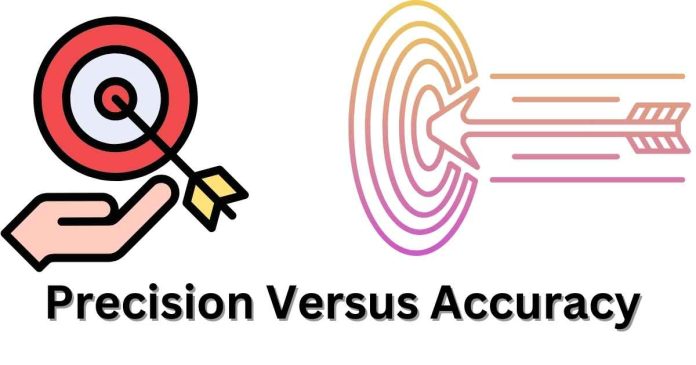The difference between precision and accuracy lies in how they describe the quality of measurements or predictions:
Accuracy:
Refers to how close a measurement or prediction is to the true or correct value.
High accuracy means the results are close to the actual or true value, regardless of consistency.
Example: If the actual weight of an object is 50 kg and your measurements are 49.8 kg, 50.1 kg, and 50 kg, they are accurate.
Precision:
Refers to how consistent and repeatable the measurements or predictions are, even if they are not close to the true value.
High precision means the results are tightly grouped, but they might still be far from the actual value.
Example: If your measurements are consistently 48.2 kg, 48.3 kg, and 48.4 kg, they are precise but not accurate.
Summary:
Accuracy = Closeness to the true value.
Precision = Consistency of measurements.
For ideal results, a system or method should be both accurate and precise.


